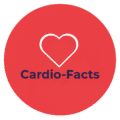
As we age, taking care of our heart becomes more important than ever. If you’re over 40, managing stress isn’t just about peace of mind — it’s a key part of preventing heart disease. In this article, we explore how effective stress management for heart health over 40 can significantly lower your cardiovascular risk and improve overall well-being.
Why Stress Becomes More Dangerous After 40
After the age of 40, your cardiovascular system undergoes physiological changes:
- Arteries lose elasticity
- Blood pressure tends to rise
- Cholesterol levels may increase
- Hormonal shifts (especially in women) affect vascular tone and inflammation
Chronic stress amplifies these effects by activating the sympathetic nervous system, raising cortisol, and triggering inflammation, hypertension, and arrhythmias.
👉 Key point: Stress is not just psychological; it’s a real, measurable cardiovascular risk factor.
The Link Between Stress and Cardiovascular Disease
Unmanaged stress has been linked to:
- Elevated blood pressure
- Higher risk of atrial fibrillation
- Accelerated atherosclerosis
- Slower recovery after heart attacks
📌 A 2021 global cohort study conducted in 21 countries (PURE study) confirmed that perceived psychosocial stress is an independent predictor of cardiovascular events, coronary heart disease, stroke, and all‑cause mortality (n≈118,706 participants): 🔗 Santosa et al., Psychosocial Risk Factors and Cardiovascular Disease and Death in a Population‑Based Cohort (JAMA Netw Open 2021;4(12):e2138920)
📌 Earlier evidence from patients with known coronary artery disease (2019, Journal of the American Heart Association) associated high levels of psychological distress with a roughly 27% increased risk of coronary events: 🔗 Psychological Distress and Cardiovascular Events (JAHA 2019;8:e011866)
Top Stress Management Techniques for Heart Health Over 40
1. Mindful Breathing and Meditation
Just 10 minutes a day can lower heart rate and blood pressure. Apps like Headspace or Calm are useful for beginners.
2. Physical Activity
Moderate aerobic exercise (e.g., walking, cycling, swimming) releases endorphins and reduces cortisol. Target: 150 minutes/week.
3. Sleep Optimization
Poor sleep increases sympathetic drive. Adults over 40 should aim for 7–8 hours of quality sleep every night.
4. Cognitive Behavioral Therapy (CBT)
CBT improves emotional regulation and enhances heart rate variability (HRV).
5. Social Connection
Loneliness is a strong predictor of cardiovascular risk. Nurture your support network with regular interactions.
6. Anti-inflammatory Diet
Adopt a Mediterranean-style diet rich in omega-3s, vegetables, nuts, and whole grains to counteract inflammation.
Sample Daily Routine for Stress Management Over 40
| Time | Activity |
|---|---|
| 7:00 AM | 10 min meditation + light stretching |
| 12:30 PM | 30 min walk after lunch |
| 6:00 PM | Heart-healthy dinner (omega-3, greens) |
| 9:00 PM | No screens, calming tea, gratitude journal |
| 10:00 PM | Lights off — sleep hygiene routine |
Warning Signs You Shouldn’t Ignore
If you’re over 40 and notice:
- Frequent palpitations
- Unexplained fatigue
- Insomnia or poor-quality sleep
- Chest tightness during stress
👉 Talk to your doctor or cardiologist. These can be signs of stress-related cardiovascular dysfunction.
Final Thoughts: Don’t Ignore Stress
Effective stress management for heart health over 40 is not a luxury — it’s preventive medicine. By adopting simple, consistent habits, you can:
- Reduce your blood pressure
- Improve heart rate variability
- Lower your risk of arrhythmias and cardiac events
Investing in your mental well-being means protecting your most vital organ: the heart.
FAQs
Q: Can stress alone cause a heart attack?
A: Yes. Intense emotional stress can trigger Takotsubo cardiomyopathy (also known as “broken heart syndrome”), especially in women over 40.
Q: How quickly does stress management improve heart health?
A: Significant benefits can appear in 2–4 weeks with consistent practice.
Q: What’s the easiest technique to get started?
A: Mindful breathing — just 5 minutes a day can make a difference.
💙 Take charge of your heart health!
Subscribe to our free newsletter for expert tips and get your complimentary guide “7 Proven Tips to Protect Your Heart After 40.”
👉 Join now
⚠️ Disclaimer: The content on Cardio-Facts is for informational and educational purposes only and does not constitute medical advice. Always consult a qualified healthcare professional regarding your health. Read our full disclaimer and legal policies.
